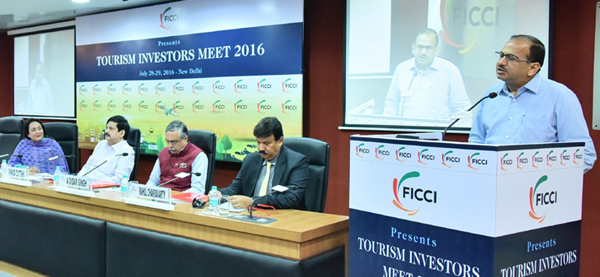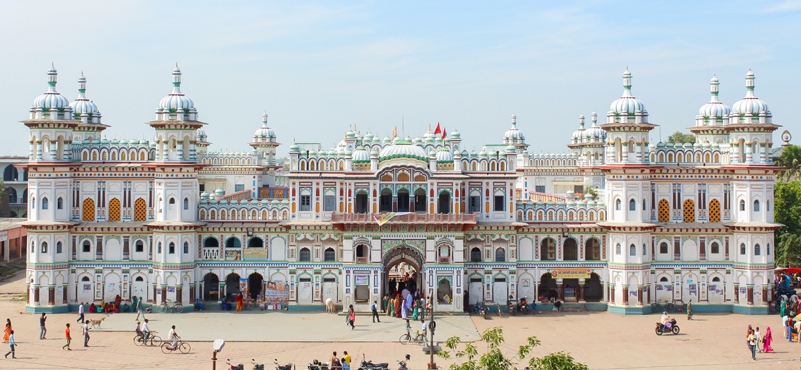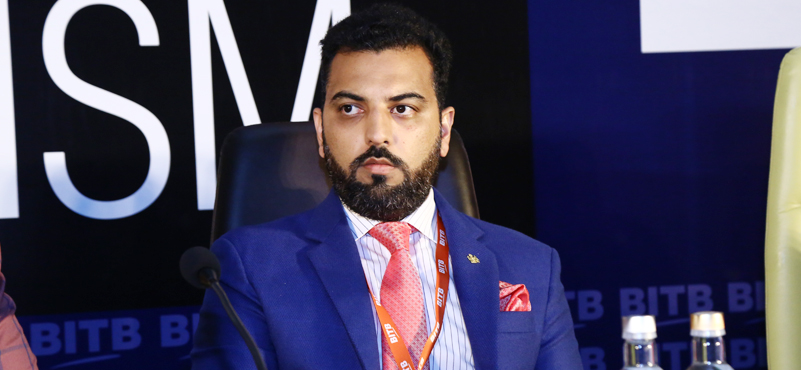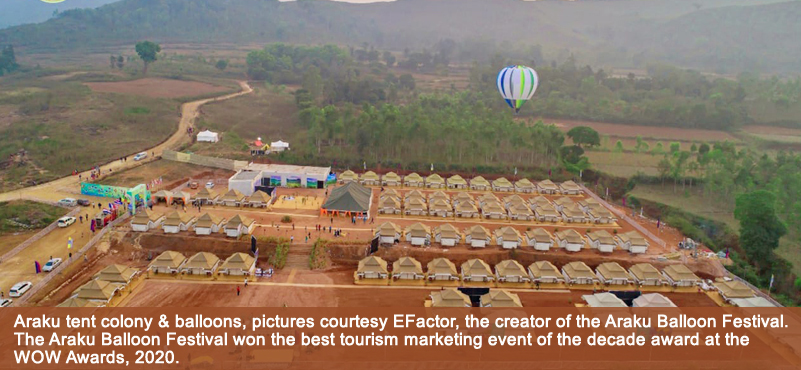Ramesh Abhishek, Secretary, DIPP, asked industry and investors to nurture India’s emerging start-up culture to better address bottlenecks and lacunae staring nation’s tourism sector. He also outlined an array of steps undertaken by his department to facilitate ‘ease of doing business’ which included an elaborate 340-point Action Plan for states to shore up investments.
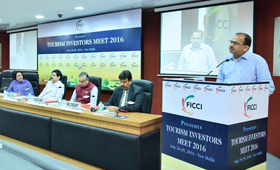 Ramesh Abhishek, secretary, DIPP minced no words when he said that India, collectively, as a nation had failed to realise tourism’s potential in creating jobs for the economy. He spoke on the importance of tourism in creating jobs and supporting country’s GDP stating that the potential India had, as a nation, was absolutely tremendous. Stressing that time was ripe for taking decisions that were going to have far reaching consequences, he said “adopt policies that help us to realise the true potential of this sector. The advantages that our country has, for tourism development, is well-known.”
Ramesh Abhishek, secretary, DIPP minced no words when he said that India, collectively, as a nation had failed to realise tourism’s potential in creating jobs for the economy. He spoke on the importance of tourism in creating jobs and supporting country’s GDP stating that the potential India had, as a nation, was absolutely tremendous. Stressing that time was ripe for taking decisions that were going to have far reaching consequences, he said “adopt policies that help us to realise the true potential of this sector. The advantages that our country has, for tourism development, is well-known.”
Noting that the launch of the e-visa regime was an important step forward on the policy front – which was already making a visible impact on footfalls and business inflows, he said “much is being done, but it also remains true that a lot more needs to be done.”
Examining the cycle of growth, Secretary mentioned that while China grew in double-digits for over three decades, and India had managed to reach 8-9 percent GDP growth for a few years, by adopting right set of policies, “India, too, should be able to realise that vision of double-digit growth for the next three decades.”
He called tourism sector “critical” in ensuring ‘quality of life’ to people and expressed satisfaction over states competing with each other in promoting tourism and facilitating ‘ease of doing business’. “It is also the priority of this government. We saw our rank improve from 142 to 130 last year, and we will see some more improvement in the figures by the end of this year,” he said.
Outlining efforts undertaken by various central government ministries and departments and, most importantly, states, he noted the DIPP had formulated a 340-point Action Plan for states. “We have a state portal now that helps in transparent display of their engagements,” he said.
He stressed that the government did not believe in the notion held by governments in previous years, which were not very friendly towards businesses, “there was, almost, a confrontational attitude. Now, in the last two years, that has changed. Government has realised that it has to create a business-friendly environment in the country, if it wants to create jobs,” he said. “And the policies of central and state governments are very clearly geared towards achieving that,” the secretary added.
Iterating that DIPP was spear-heading efforts in creating an enabling environment for doing business, he mentioned some of the transformational work that DIPP was engaged in. Sharing that while construction projects usually took months and years to complete in Delhi and most of the other states, he mentioned that introduction of online systems had helped expedite process. “Online systems in Delhi, Mumbai, and many other states are helping get a plan approval done in a matter of 14 days,” he said.
A major irritant in expediting approvals stemmed out of the need to obtain an array of permissions from various government authorities, but commendably the government and DIPP had addressing this lacuna, he shared. “One has to fill a common application form, online, at the municipal corporation website. All the involved agencies have also improved their processes and ensured that clearances are expedited at their end,” he said. Adding that Rajasthan government had recently come up with a self-certification system, he said that it had technically made it possible to obtain permit in a day.
He announced that reforms in Customs was another criterial area where the department and the government had focused its energies on. “Delays and consequent cost incurred on operations of importers and exporters is behind us. There is an online system in place – where all six main coordinating authorities like Food Safety Authority and Drug Controller have been integrated in the system. Introduction of online processes and integration of various departments under one system has reduced the time taken by half,” he shared.
The Secretary mentioned that they were doing similar things to facilitate exports, and urged investors to share with them issues impacting tourism sector; which could be common or specific issues, too.
Taking stock of the start-up culture, DIPP Secretary noted that use of technological innovations and disruptive mechanisms by start-ups like hotel aggregators and taxi aggregators had made it challenging for laws to be kept at pace with the dynamism of the market. “We have been in conversation with various start-ups and the Department of Industrial Policy and Promotion would be happy to work with states and other central government ministries to better work with them,” he added.
“We are also implementing the start-up India action plan. We hope that ministry of tourism also looks at promoting some start-ups and incubates them purely for tourism development. DIPP has appealed to private sector; I have myself met top corporates to improve CSR work and encourage start-ups,” said the secretary.
Insisting that the government had a clear-cut policy on FDI, he said that one hundred percent FDI was being allowed under the automated route. “In the last two years we have been able to attract over two billion dollars of investment where ‘Invest India’ is the investment promotion agency for us,” he shared. Informing that the ministry of tourism, too, was going to be working in tandem with ‘Invest India’, he said “the department is open to connecting states with foreign investors, if any of the states are interested in any such prospect.” He further added that the government was examining the possibility of roping in major international companies that made substantial investment into tourism, and was appraising on possibilities of getting them to invest in India.
In his closing statement, he batted for technology, arguing that bottlenecks and issues that plagued India’s tourism sector could be steadily addressed by infusing technology and nurturing the ‘start-up’ environment. “I was looking at a certain app that had been devised to provide security to women. There are already a number of apps that assist tourists in finding hotel rooms and cracking last-minute travel deals,” he said, noting that opportunities and possibilities were many. He said that India had already put in place right set of policies and was, further keen on radical changes in the way it visualise things. “I believe it is the only way we can truly achieve the real potential of the country along with its tourism sector,” he concluded.

